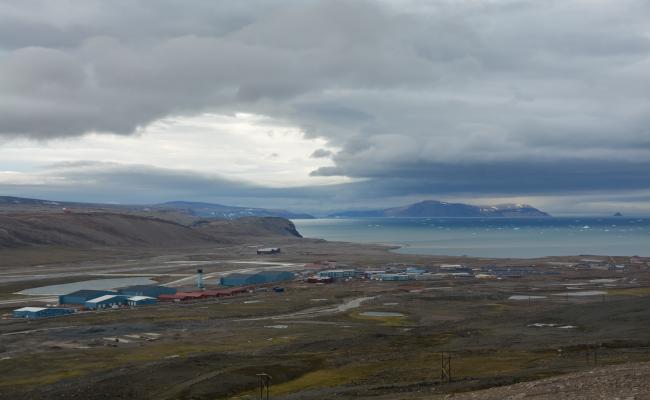Op-ed: The U.S. Is Playing Geopolitical Monopoly in the Arctic

Then-commander of Pituffik Space Base in Greenland, Colonel Susannah Meyers hosted a visit from U.S. Vice President J.D. Vance to the base on March 28. He was accompanied by Second Lady Usha Vance, U.S. National Security Advisor Mike Waltz, and Energy Secretary Chris Wright. (Photo: Jaime Sanchez/U.S. Space Force)
Donald Trump is back in the White House and so is his ambition to "buy" Greenland. What was once portrayed as a provocative joke has returned as a serious foreign policy agenda. But this time, the world cannot pretend it is caught off guard.
Trump’s renewed interest in acquiring Greenland is not simply eccentric. It exposes a deeper, more dangerous doctrine: the idea that sovereign territories can be treated like real estate bought, sold, and exploited according to the whims of global superpowers.
For Washington, it seems the Arctic is just another board in a geopolitical game of Monopoly, where strategic assets replace houses and military bases stand in for hotels.
Greenland holds a uniquely strategic position in the Arctic Circle. It provides direct access to the North Atlantic, controls vital sea lanes, and enables surveillance of Russian naval movements.
Its location is critical to the United States’ ballistic missile early-warning system, and its military utility is already entrenched as evidenced by the long-standing U.S. airbase at Pituffik, operating under a 1951 defense agreement with Denmark.
The island’s mineral wealth has drawn the attention of mining giants and state powers alike.
But beyond its military significance, Greenland is rich in untapped natural resources including 25 of the 34 critical minerals identified by the European Commission, such as rare earths, lithium, and graphite.
Although oil and gas extraction are currently banned for environmental reasons, the island’s mineral wealth has drawn the attention of mining giants and state powers alike.
Trump’s "Offer" and Europe’s Silence
When President Trump first floated the idea of buying Greenland in his previous term, the global reaction was one of disbelief and amusement. This time, the silence is more dangerous than laughter.
The European Union, which speaks frequently of multilateralism and respect for sovereignty, has remained disturbingly passive.
In contrast, the European Left took a principled stand. We tabled a motion in the European Parliament condemning the colonial overtones of the proposal and called on EU member states to support Greenland against any form of imperial pressure.
Also read (The text continues)
We denounced Trump’s threats and criticized the European Commission’s inaction. But the motion was voted down by the parliamentary majority a clear sign that, when power speaks, principles often retreat.
The longstanding U.S. presence in Greenland made possible through NATO frameworks and Danish alignment is often justified as a matter of "collective security."
But in reality, it reflects an asymmetric dependency: Copenhagen relies on Washington for Arctic defense, while Greenland remains caught in a semi-colonial status, struggling for autonomy under the shadow of two powers.
Former NATO Secretary General Anders Fogh Rasmussen recently stated that a military annexation of Greenland is "not likely." But the fact that such scenarios are now openly discussed by top officials is alarming in itself.
The Arctic is not a blank canvas for the strategic fantasies of superpowers. It is home to communities, ecosystems, and sovereign rights.
Indigenous populations, local governments, and the environmental future of the planet must not be collateral damage in an imperial game of resource capture and military dominance.
Greenland is not for sale. Not to the United States. Not to anyone.
If we accept that global powers can redraw maps and claim territory with the logic of a business deal, then we have learned nothing from the 20th century’s darkest chapters. The time to resist is now before the Arctic becomes the next frontier of unchecked imperialism.




